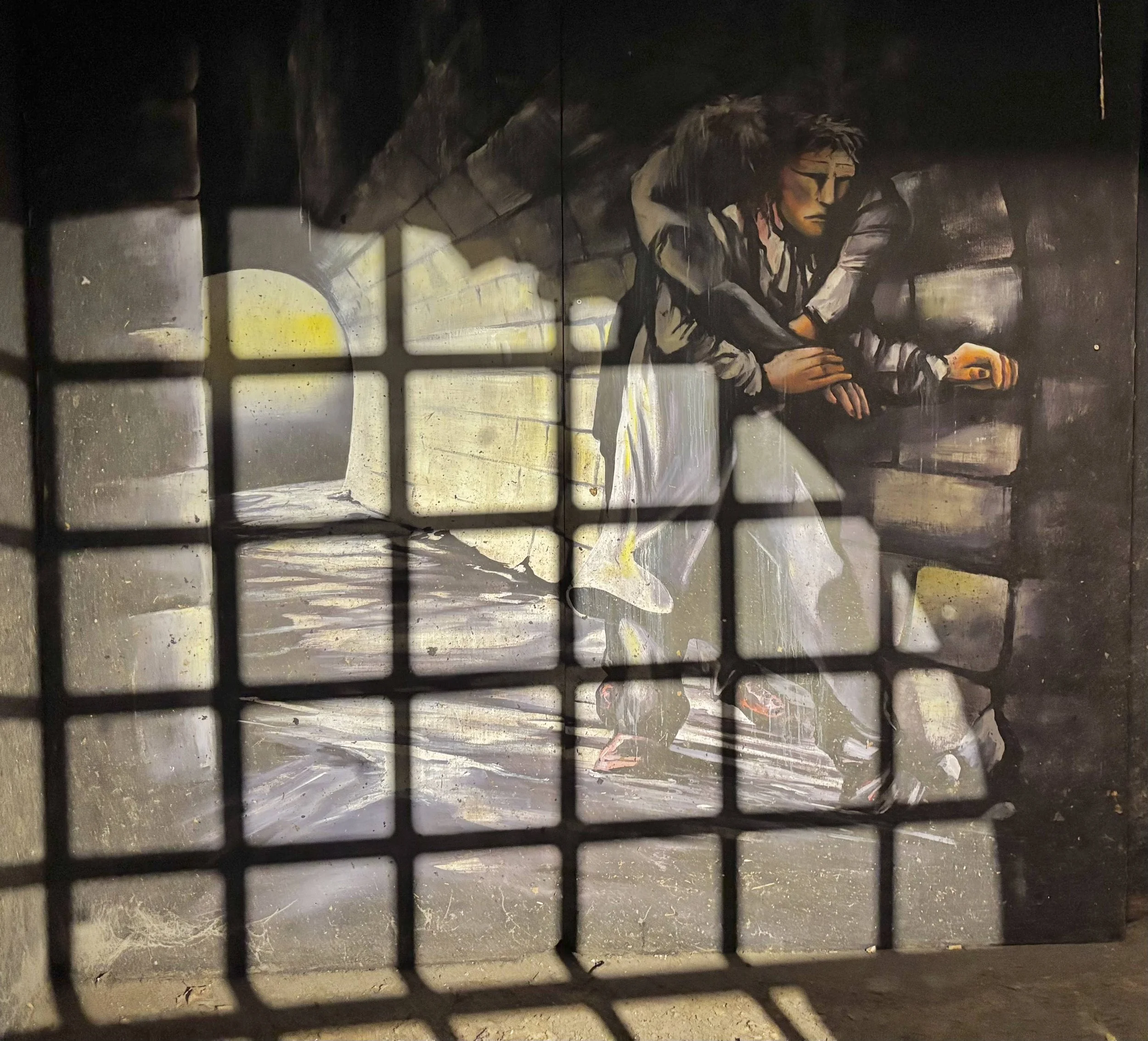The Sewer Museum wasn’t something I imagined I would go to when visiting Paris. It felt like a strange detour at first—a descent into the literal underbelly of the city, far from the typical romanticism above ground. But as Victor Hugo once said, we must shine a light on the underbelly of society. I made my way through the echoing corridors and listened to the water trickling alongside history. I realized I had stumbled upon a hidden cornerstone of one of the great achievements of Paris. This wasn’t just about engineering. This was about progress.
Victor Hugo understood this. In Les Misérables, he devoted entire chapters to the Parisian sewers—not out of grim curiosity, but because he saw in them a triumph of human achievement. The sewers were more than just tunnels; they were the arteries of a modern city, essential to its health, growth, and dignity.
“There is no good historian of the evidence, the manifest and the remarkable, of the public life of nations, who is not also to some extent the historian of their underlying and hidden life.”
Solving the sewage system was one of the most important public health advancements in modern history. Disease once swept through cities unchecked, carried in contaminated water and poor sanitation. But by daring to look where no one wanted to—into the filth, the waste, the infrastructure no one celebrated—engineers, visionaries, and reformers transformed the future. Civilization didn’t advance by avoiding what was unpleasant. It progressed by confronting it directly, with courage and imagination.
And it was true. Walking through the museum, you could feel that: the filth and the function, the darkness and the design. It is easy to take clean water and efficient systems for granted, but the museum makes you realize that these are triumphs, hard-won by centuries of failure, labor, and vision. Displays trace the system’s evolution—from Bruneseau’s early explorations through Haussmann’s sweeping 19th-century reforms, right up to today’s digital monitoring networks. It’s a story not just of pipes and tunnels, but of politics, sacrifice, and the will to imagine a better life for all.
The story of the Paris sewers mirrors the story of civilization itself: jagged, uneven, full of setbacks and breakthroughs. It’s not a straight path, and it certainly isn’t glamorous. It costs lives, it demands political will, and it requires people with the courage to imagine something better long before it’s possible. But the result—cleaner cities, longer lives, a foundation for society to build itself upon—is worth every difficult step.
But I think Hugo added the sewers for another reason. To show different forms of progress. On one side, we see the heroic men who fought and died for this country on the barricades, and that certainly is worthy progress. But this kind of progress is quiet. Underground. Often unnoticed. It doesn’t carry a flag or chant songs, but it lays the groundwork upon which all revolutions must be built. That was what Hugo grasped so profoundly. He romanticized the barricades, yes. But he also understood that beneath them ran the sewer, and without that base, the society that the revolution fought for would not be here.
As I left the museum, I thought back to a conversation I had earlier about human progress and the thoughts of Enjolras. He represents the more visible, dramatic kind of change—urgent, idealistic, uncompromising. Enjolras charges ahead, demanding that the future arrive faster and at whatever cost. His barricades were noble, yes, but they were temporary. The loud revolutions get the praise, but that praise doesn’t last. The quiet revolutions? They endure.
In today's world, progress is less about the roar of revolution and more about the hum of technology, policy, and global awareness. Our barricades are climate change, inequality, mental health, and justice reform. And still, like in the tunnels below Paris, much of the necessary work happens in quiet spaces: in back offices, in research labs, in data centers—or underground.
Later in the novel, Hugo spends a few chapters describing Jean Valjean’s trek through the sewers while saving Marius. Valjean has multiple close encounters with danger and death, yet Marius has no idea and for a while later he never realizes how hard Valjean fought so he could be there. I think it’s funny how Hugo depicted this scene in the sewers since the sewers serve society as Jean Valjean served Marius. Without the sewer, society would not function the way it does today. And it didn’t happen without setbacks. But it goes to show that progress isn't always glorious. Sometimes it's dirty. Sometimes it smells. Sometimes it takes centuries to get right. But to me, that doesn’t diminish its value—it elevates it. To recognize the sewer is to recognize the importance of Valjean’s trek, and to recognize truth of society: that beneath every shining city lies the labor of many, mostly unseen and unthanked.
“If I have seen further [than others], it is by standing on the shoulders of giants.”
Revolution happens both above and below. It is both poetic and practical. And it continues. Always.




















